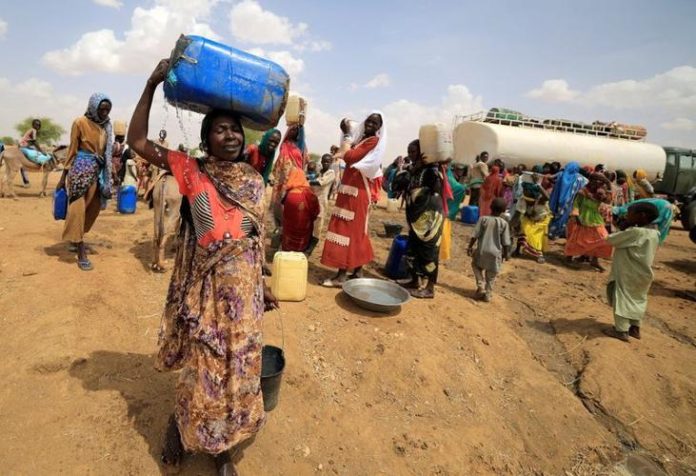Sudan fighting, a deal to facilitate humanitarian aid to the war-torn African nation of Sudan, which is experiencing a severe food crisis as a result of a weeks-long military conflict, has been signed by the army of Sudan and the Rapid Support Forces (RSF), but the terms of ceasing fire were unable to reach.
The two opposing military forces reportedly agreed to protect civilians on Friday, according to media reports, but they were unable to agree on a ceasefire.
The army and Special Forces will “take all precautions to spare any harm to civilians” and adopt “simple and rapid procedures for humanitarian relief operations in Sudan,” according to a declaration signed by representatives of the sides who are currently negotiating a peace agreement in the Saudi port city of Jeddah.”
READ MORE: The first batch of Nigerians fleeing Sudan return home
The two forces’ actions will be governed by the Declaration of Commitment to Protect the Civilians of Sudan, which will also serve as a guide for the safe distribution of humanitarian aid, the restoration of essential services, the removal of forces from hospitals and clinics, and the dignified burial of the deceased.
The two sides also agreed to respect private and public property in Sudan and refrain from interfering with the country’s evacuation.
Additionally, they agreed to refrain from enlisting teenagers and using kids as human shields.
On May 6, 2023, representatives of the Sudanese armed forces and the Rapid Support Forces commenced peace negotiations in Jeddah. The parties engaged in negotiations have referred to the Sudanese conflict as an internal matter and urged other countries to stay out of Sudanese politics.
Fighting continues in Sudan in the meantime as a result of the ongoing power struggle between the head of the RSF, Mohamed Hamdan Dagalo, alias Hemedti, and the army chief, Abdel Fattah al-Burhan, who also serves as the council’s deputy.
Residents in Halfaya, a gateway to the capital Khartoum, heard warplanes circling over the city and its neighboring cities of Bahri and Omdurman on Thursday, but the fighting seemed less intense than on Wednesday.
The conflict that erupted suddenly last month threatens to plunge Sudan into a civil war, worsening the suffering of its citizens, and potentially igniting a massive humanitarian crisis with failing power and water, little food, and a failing health system. Neither side appears willing to make concessions to end the conflict.
Since the fighting started last month, the World Health Organization reports that more than 600 people have died and more than 5,000 have been injured.
According to UN statistics, approximately 700,000 people have left their homes, with 150,000 of them seeking refuge in nearby nations.
There are severe shortages of food, water, fuel, and access to medical care for many of the 45 million people who are still living in Sudan.
There are 15.8 million people in Sudan who, according to media reports, are in urgent need of humanitarian aid, making Sudan the nation with the highest number of people who require food to be transported to them by international organizations.













